In an era of news media spewing sensationalism, gossip, and manufactured controversy, the world needs someone like Carl Kolchak delivering the plain truth. Sure, rain-swept streets can be enchanting at night, but there are horrors lurking in the shadows. Vampires, werewolves, and witches abound alongside myriad nightmare creatures. The truth may be unwelcomed, yet that won’t stop Kolchak from trying to print it.
Granted, Carl Kolchak (played by Darren McGavin) is a fictional character, however, if fiction is a means to portray ideals, then he’s a type of reporter the world is sorely lacking. He’s a compelling comfort in a variety of ways. If nothing else, he’s the promise that even though only a few know, the truth will always be out there to some degree.
Maybe you read about it, or rather what they let you read about it.
For those unfamiliar, the character Carl Kolchak came to life back in the 1970s. Conceived by writer Jeff Rice, he first appeared in a novel called The Kolchak Papers that initially went unpublished. Yet somehow the television rights still got sold to ABC. TV producers hired legendary ink-slinger Richard Matheson to write the script, and he churned out The Night Stalker. The success of that movie would lead to a sequel, 1973’s The Night Strangler, and eventually spawn a TV series.
Essentially, the character is a product of the initial novel adapted into a film and then a tv series. Whatever essence Richard Matheson distilled from the book the television incarnation is how most know Carl Kolchak. This amounts to an acerbic fast talker plunging headlong into danger in pursuit of stories. He prowls the city streets carrying a portable cassette recorder and catching snapshots with a Rollei 16 camera. Cruising in a yellow Mustang convertible, he wears a suit the thrift store wouldn’t take, his head covered by a straw pork pie that looks in need of a drink.
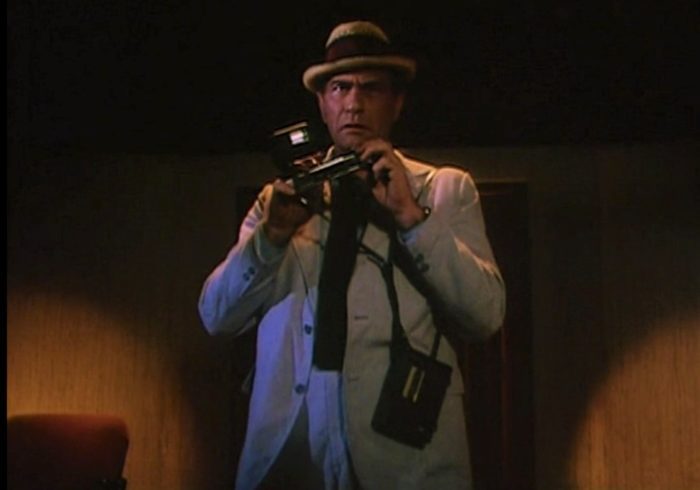
This isn’t a stylish fellow, though perhaps that’s what makes him so appealing. Kolchak is hardly the height of hotness. All due respect to performer Darren McGavin, the image he presented wasn’t likely to win any fashion awards or end up on the cover of glamour magazines (Although I’d argue there are enough perfect tens on television, it’s nice to see a solid seven like me in the lead). Besides that, it offers a sense of someone at ease in their appearance. The straw hat and shabby suit may seem like signs of a shlub, but they also convey comfort.
This isn’t a person who follows fashion trends. Unless the cotton in question is the sign of a mummy there’s no need to bother with it. He doesn’t have six-pack abs because there’s no time for stomach crunches when beasts are turning the boulevard into a buffet. Carl Kolchak knows the shallow standards of beauty are meaningless in the face of cosmically dread realizations.
That disregard for society’s woeful values also gives him one of his strengths. Consider the cases of “The Horror in the Heights” and “The Youth Killer” where elderly victims are dismissed by most as senior citizens simply dying of old age. The authorities treat the deaths as no surprise, insultingly jumping to the conclusion that’s what old people do—case closed. Kolchak, on the other hand, is the only one willing to probe deeper.
Maybe the elderly man died naturally, but then how did the rats eat him so fast? Well, it turns out the rodents never touched him, a Hindu demon called a Rakshasa devoured the poor fellow. Furthermore, the well-aged corpses left by the youth killer are actually young people drained of their vitality by Helen of Troy.
I’ll have to start at the beginning with the autopsy on the dead panda.
Whether witches, moss monsters, or Mesopotamian succubae, Kolchak isn’t an expert. That gives him another compelling quality. He rarely knows all there is to know off hand. These aren’t the exploits of a paranormal Ph.D. who recognizes the subtlest signs of the supernatural. He needs the lab lady to determine the chemical composition of alien gunk. Nor does he casually possess the info necessary to dispatch the various creatures he encounters. Instead, Kolchak often needs to get the low down on a boogeyman from an informed source. This means that whatever evil he defeats doesn’t take a genius to conquer it.
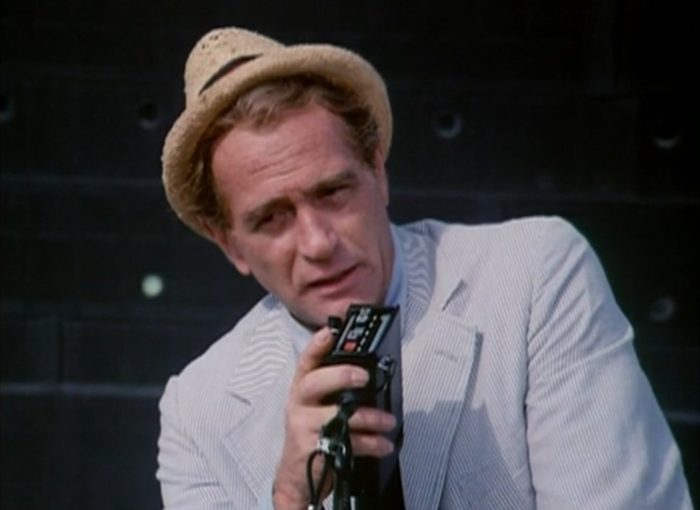
He’s an ordinary person not a walking encyclopedia of the weird. That makes his adventures accessible to the common individual: there’s nothing stopping you from being Kolchak. Any person willing to put in the effort, pouring over books or simply taking the time to listen, could conceivably accomplish the same. Furthermore, he knows his limits.
It’s that lack of presumption which prevents him from being oblivious to hints something is amiss. While the rest of the world immediately grasps the first comforting conclusion, Kolchak isn’t content. He explores the holes in every story, fearlessly going towards knowledge—the truth that risks life and limb as well as sanity.
Though that said, he doesn’t initially go for the unreal explanation. He gathers evidence, following wherever it leads, and accepts what the facts reveal. Even if that means a Satanist politician is turning into a dog to murder his political rivals, Kolchak accepts the strange while others aspire to the blind bliss of willful ignorance.
Horror on television used to be a tricky thing. Gore couldn’t be shown in any real quantity, so the blood-drenched kill never made it on screen. Suspense and tension existed to a degree; however, everyone knows the main characters are never in any real danger. It all came down to implication more than anything else, and in that vein, Kolchak succeeded by conveying the existential nightmare of knowledge.
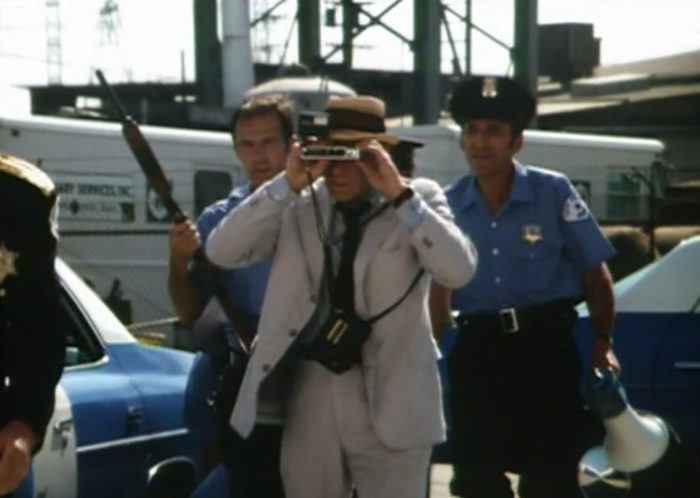
Within every episode, the audience peeks behind the veil beside the intrepid reporter revealing a cavalcade of creatures haunting the dark. It isn’t so much the fright of a blood flood, but rather the grim realization that things that go bump in the night are actual monsters. The safety of reality’s banality is shattered by witnessing werewolves, androids, and extraterrestrials. The serial killer is an ageless Jack the Ripper, et cetera, etc. Worse, the world is desperate not to believe, so those who know the truth are often dismissed.
That latter aspect is another reason Kolchak compels respect—he embodies the ideal of every reporter. His commitment to the truth is absolute even though it wins him nothing: twisting things to fit the status quo, wherein monsters remain unreal, might benefit his career. Yet, Kolchak remains determined to tell what really happened. For him, the truth is more important than its negative consequences. He can live with the mockery and dead ends that result from reporting the paranormal. What he can’t live with is any kind of a cover-up.
We are supposed to print news, not suppress it!
In a way, he’s a gonzo journalist. Kin to Raoul Duke, Kolchak captures that spirit of the new journalism emerging in the 1970s. He’s one of those reporters who inserted themselves into the story lending it a personal perspective.
His articles, heard as he reviews his tapes, drip with animosity when it comes to authority figures. This isn’t someone likely to be beguiled by The Man. Just because a belly dancer or sex worker died doesn’t mean the dead don’t deserve a compassionate search for what killed them. Although others would prefer things swept under the rug, Kolchak won’t let them. However, it isn’t all vitriol. There’s an honest appreciation for the cultures that know better. Take, for instance, his willingness to embrace Native American traditions in order to stop the slaughter caused by the bear god Macheminido.
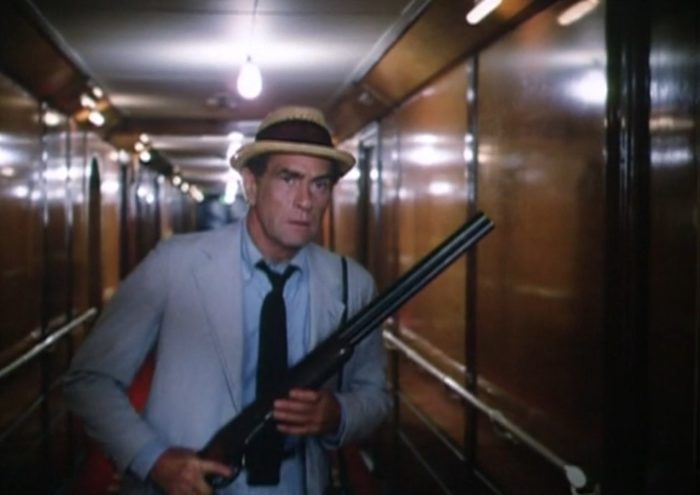
Unfortunately, most episodes of the series end up with Kolchak’s story getting changed or presumably buried on a back page. In the two tv movies, his articles are written for him by those in power. He’s never even given a chance to reveal what really happened and then gets bounced out of town. He may have saved Las Vegas from a vampire, but the powers that be would rather silence him with a phony murder charge than risk the loss of a single tourist dime. The same sad story repeats in Seattle, yet despite this miserable history Kolchak never stops.
When he finally lands on his feet in Chicago, he’s still the same unflinching truth seeker. No matter how much the cops bark, he nonchalantly points out the obvious flaws in their deductions. Sometimes he does so with a smirk the audience can’t help sharing. Whatever excuse the authorities use to ignore evident horrors, Kolchak points a finger at signs of something sinister. And woe to whatever fool tries to spar with him verbally. He’s got a quick wit necessary to deliver sarcastic ripostes aplenty.
It’s too bad he often loses whatever evidence he manages to gather. In that way, Kolchak is a cynic’s version of the loveable loser. Crooked cops snatch a cassette full of valuable quotes; the killer’s body is burned before science can take a look; photos are lost, don’t turn out right, or seem meaningless to those who don’t want to see the truth. No matter how much he does everything right, some mishap or the system itself inevitably sets him back. Yet, it never stops Kolchak from soldiering forward.
There’s a line in The Night Stalker about how “a journalist fits in somewhere between a wh*re and a bartender. But spiritually he stands beside Galileo. He knows the world is round.” There’s always been an odd appeal to such outcasts: the people who know the world yet are ostracized for their knowledge. Even those who respect them rarely aspire to be them, though they want their insights. Everyone craves the forbidden fruit from the tree of knowledge but would rather come by it indirectly, let others take the brunt of the consequences. Enter Carl Kolchak.
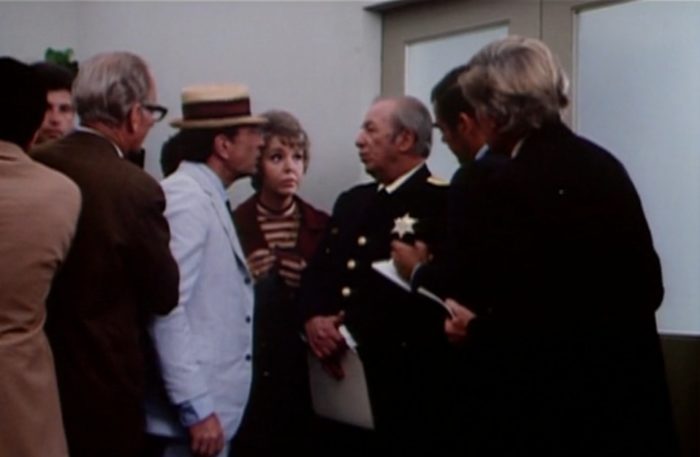
By hook or by crook, he seeks to pull down the veil hiding the dark truth. The world is not as it seems, and the people deserve to know. The truth could save lives. There are vicious abominations waiting to pounce. Almost worse, rather than risk derailing the money train, those in power would let the sinister simmer, snatching an undesirable or two. The system is against him, and the average citizen prefers a reality unsullied by living nightmares, but Carl Kolchak is on a quest. It’s quixotic to a certain degree, however, he won’t let the facts remain hidden. Unpleasant as it may be, he’s answered the call to be a new kind of knight.
One who wields a typewriter and pen yet does so more mightily than any sword swinger. He’s proof the truth not only matters, but someone is willing to risk it all to get it out there. While he may not be an exemplar of the chivalric code, his grifting, slick talk, and quick wit get the job done. The irony of exposing that truth, being that honesty isn’t the best route to it.
I’m becoming extinct in my own lifetime.
The Night Stalker is an excellent albeit made for tv movie. However, the thing I think best sums up the majesty of Carl Kolchak is in an episode of the television series “The Horror in the Heights.” Spoiler alert! The monster of the week, a Rakshasa, lulls its victims by appearing as someone the potential kill will trust. Although Kolchak insists he trusts no one, at one point he sees advice columnist and puzzle doyenne Ms. Cowles, an elderly coworker at his newspaper. As she creeps closer down a dark corridor, Kolchak makes the decision to shoot her with an arrow blessed by a brahmin. He kills the Rakshasa but in essence, shot a sweet old lady. Not everyone can do that, let alone live with the implication.
It takes a certain kind of individual to reach down into the muck, hold up the wriggling filth, and shove it in the world’s face. And living with the aftermath takes a fortitude many imagine they have without ever possessing it. We can’t all be like Carl Kolchak. He’s a rare breed never mass-produced. In some ways, perhaps that’s for the best. The rarity makes him more special. On the other hand, it wouldn’t hurt to have more people dedicated to the truth the way he is. Whatever the facts reveal, Kolchak isn’t afraid to face it, and neither should we.




Really enjoyed learning so much about the character. I have fond memories of watching this on tv way back, and this provides texture and a prompt to rewatch! Thanks.